
Mordecai Menahem Kaplan was a Lithuanian-born American rabbi, writer, Jewish educator, professor, theologian, philosopher, activist, and religious leader who founded the Reconstructionist branch of Judaism along with his son-in-law Ira Eisenstein. He has been described as a "towering figure" in the recent history of Judaism for his influential work in adapting it to modern society, contending that Judaism should be a unifying and creative force by stressing the cultural and historical character of the religion as well as theological doctrine.
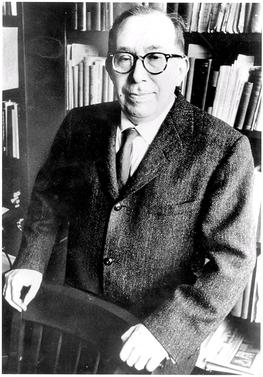
Leo Strauss was a German-American scholar of political philosophy who specialized in classical political philosophy. Born in Germany to Jewish parents, Strauss later emigrated from Germany to the United States. He spent much of his career as a professor of political science at the University of Chicago, where he taught several generations of students and published fifteen books.
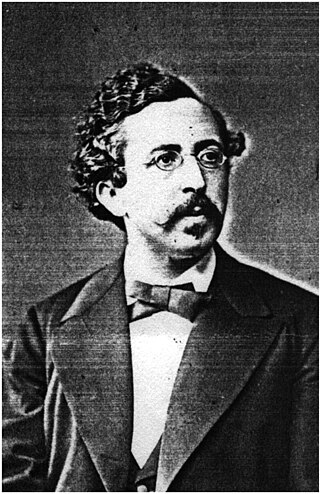
Hermann Cohen was a German Jewish philosopher, one of the founders of the Marburg school of neo-Kantianism, and he is often held to be "probably the most important Jewish philosopher of the nineteenth century".

Persecution and the Art of Writing, published in 1952 by the Free Press, is a book of collected articles written by Leo Strauss. The book contains five previously published essays, many of which were significantly altered by Strauss from their original publication:
- Introduction
- Persecution and the Art of Writing
- The Literary Character of the Guide to the Perplexed
- The Law of Reason in the Kuzari
- How to Study Spinoza's Theologico-Political Treatise
Academic study of Jewish mysticism, especially since Gershom Scholem's Major Trends in Jewish Mysticism (1941), draws distinctions between different forms of mysticism which were practiced in different eras of Jewish history. Of these, Kabbalah, which emerged in 12th-century southwestern Europe, is the most well known, but it is not the only typological form, nor was it the first form which emerged. Among the previous forms were Merkabah mysticism, and Ashkenazi Hasidim around the time of the emergence of Kabbalah.

David Novak, is a Jewish theologian, ethicist, and scholar of Jewish philosophy and law (Halakha). He is an ordained Conservative rabbi and holds the J. Richard and Dorothy Shiff Chair of Jewish Studies as Professor of the Study of Religion and Professor of Philosophy at the University of Toronto since 1997. His areas of interest are Jewish theology, Jewish ethics and biomedical ethics, political theory, and Jewish-Christian relations.
This is a list of books by Jacob Neusner. Articles, reviews, etc. are not included here.
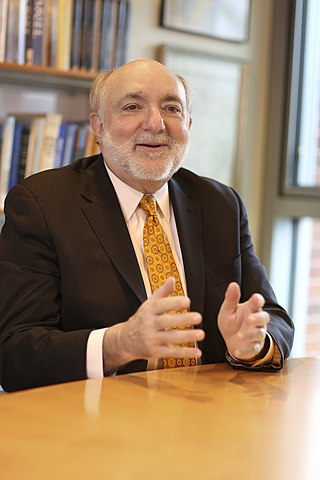
David Ellenson was an American rabbi and academic who was known as a leader of the Reform movement in Judaism. Ellenson was director of the Schusterman Center for Israel Studies and visiting professor of Near Eastern and Judaic studies at Brandeis University and previously president of the Hebrew Union College-Jewish Institute of Religion (HUC-JIR). He previously served as president of HUC-JIR from 2001 to December 31, 2013, and was later chancellor emeritus of that college until his death. Ellenson had served as interim president following the death of his successor, Aaron D. Panken until the inauguration of Andrew Rehfeld, the 10th and current President.
Elliot R. Wolfson is a scholar of Jewish studies.

Moshe Halbertal is an Israeli philosopher, professor, and writer, a noted expert on Maimonides, and co-author of the Israeli Army Code of Ethics. He currently holds positions as the John and Golda Cohen Professor of Jewish Thought and Philosophy at the Hebrew University of Jerusalem and Gruss Professor of Law at NYU School of Law. In 2021 he was elected to the American Philosophical Society.
Peter W. Ochs is the Edgar M. Bronfman Professor of Modern Judaic Studies at the University of Virginia, where he has served since 1997. He is an influential thinker whose interests include Jewish philosophy and theology, modern and postmodern philosophical theology, pragmatism, and semiotics. Ochs coined the term "scriptural reasoning" and is the co-founder of the Society for Scriptural Reasoning, which promotes interfaith dialog among Christians, Jews, and Muslims through scriptural study groups. He is also a co-founder of the Children of Abraham Institute, which promotes interfaith study and dialog among members of the Abrahamic religions.
Michael Zank is a German-born American author, specializing in Jewish theology and philosophy.
Alan Mittleman is a professor of Jewish philosophy at the Jewish Theological Seminary of America.
Shaul Magid is the Distinguished Fellow in Jewish Studies at Dartmouth College. From 2004-2018, he was a professor of religious studies and the Jay and Jeannie Schottenstein Chair of Jewish Studies in Modern Judaism at Indiana University as well as a senior research fellow at the Shalom Hartman Institute. From 1996-2004, he was a professor of Jewish philosophy at the Jewish Theological Seminary of America; he was chair of the Department of Jewish Philosophy from 2000-2004.
Christine Hayes is an American academic and scholar of Jewish studies, currently serving as the Sterling Professor of Religious Studies in Classical Judaica at Yale University, specializing in Talmudic and Midrashic studies and Classical Judaica.

David Nirenberg is a medievalist and intellectual historian. He is the Director and Leon Levy Professor at the Institute for Advanced Study in Princeton, NJ. He previously taught at the University of Chicago, where he was Dean of the Divinity School, and Deborah R. and Edgar D. Jannotta Distinguished Service Professor of Medieval History and the Committee on Social Thought, as well as the former Executive Vice Provost of the University, Dean of the Social Sciences Division, and the founding Roman Family Director of the Neubauer Family Collegium for Culture and Society. He is also appointed to the Department of Romance Languages and Literatures, the Center for Middle Eastern Studies, the Joyce Z. and Jacob Greenberg Center for Jewish Studies.
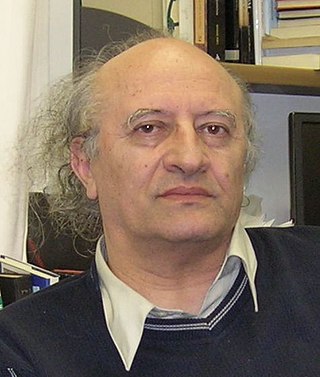
Moshe Idel is a Romanian-born Israeli historian and philosopher of Jewish mysticism. He is Emeritus Max Cooper Professor in Jewish Thought at the Hebrew University, Jerusalem, and a Senior Researcher at the Shalom Hartman Institute.
David Sorkin is the Lucy G. Moses professor of Jewish history at Yale University. Sorkin specializes in the intersection of Jewish and European history, and has published several prominent books including Jewish Emancipation: A History Across Five Centuries.
Zachary Braiterman is an American philosopher, best known for writing on the topics of Holocaust theology, Jewish thought, aesthetics, and Jewish art. He is also a professor of religion at Syracuse University.
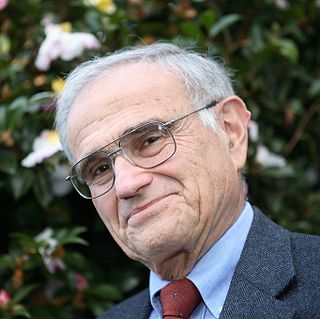
Michael Albert Meyer is a German-born American historian of modern Jewish history. He taught for over 50 years at the Hebrew Union College-Jewish Institute of Religion in Cincinnati, Ohio. He is currently the Adolph S. Ochs Emeritus Professor of Jewish History at that institution. He was one of the founders of the Association for Jewish Studies, and served as its president from 1978–80. He also served as International President of the Leo Baeck Institute from 1992–2013. He has published many books and articles, most notably on the history of German Jews, the origins and history of the Reform movement in Judaism, and Jewish people and faith confronting modernity. He is a three-time National Jewish Book Award winner.









